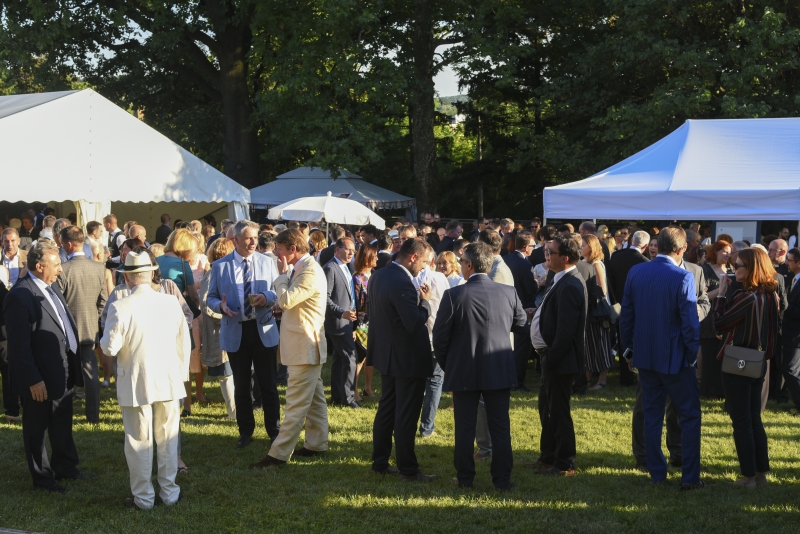Text: Žikica Milošević
At the time of the biggest media blackout, in the 1990s, magazine Vreme was the one that shone through because it was harbouring democratic or oppositionary ideas contrary to the government in power, even those ideas that, at the time, seemed eternal. This was a very difficult road for the magazine to take, namely to „be on the line for other side to be heard“, but Vreme came out victorious. We are talking to one of the bards of the Serbian journalism and one of the calmest, yet sharpest journalists in this region – Dragoljub Žarković.

-
In his book „It’s me, Eddie“, Eduard Limonov says that the main difference between socialism and liberal capitalism lies in the fact that there is open censorship in socialism, while in liberal capitalism there is “silent censorship” where the government declares non-commercial everything that it doesn’t like which, as a result, “dies out in the market” on its own. This probably explains Limonov’s later inclination towards the right. Are we today seeing critical and objective thinking being pushed out of focus precisely in the same way?
While I was a faculty professor, the students used to call me „the teacher of skills“. This saved me from having to engage in theoretical discussions and learned considerations. Today, I am not even tempted to get into that. Limonov certainly had different experiences than someone like me. We did not have the same kind of socialism that Limonov and his ancestors suffered under. Here, in Serbia, liberal capitalism is not fully implemented or realized. Here, the boundaries of freedom have always been somewhat wider. Today, you can be free provided you choose poverty. Hence, it is not really required for something to „die out“ on its own. There will always be someone who will pay you a ticket to hell if he sees you as a political opponent. The problem runs much deeper. We have an attempt at liberal capitalism here. And when you attempt to have liberal capitalism, what happens is that there are no rules in place, not even the ones that apply to the media.
-
Aldous Huxley wrote about a much more realistic dystopia than Orwell. Instead of secret police and Stalinism, there is this drowning in banal and hedonistic. Do you think that we are drowning in cheap content today, and that people are becoming disinterested in serious topics?
For weeks, one of the most popular websites here has been running a story about our popular singer being beat up by her husband, and all the articles on this topic were published in the segment „Entertainment“. I think that this would suffice as an answer to your question, if, to top it all off, there wasn’t a media coverage of the funeral of the father of one of a reality show participants. My answer is still the same, albeit reinforced by the latter example. The media have been reporting day and night about celebrities that were against vaccinations. First, they praised them, then shamed them. The frivolousness you are asking me about is due to irresponsibility and incompetence, or the absence of the intention on the state and the society’s part to react.
-
Why is abstention seen as a higher good today? It seems that we cannot expect to see either a protest or a revolution, especially after every revolution has either resulted in failure (the Arab Spring), or rather questionable results (Serbia, Ukraine). Do you think that young people will rise?
There were such periods throughout the history of mankind. Revolutions are like summer rain – irascible and sudden. And, as you say, they either end up in failure, or yield questionable results. I also sleep in when I don’t have anything to do in the morning. Why would young people rise up? Healthy sleep is the best medicine.
-
Could you give us a short overview of the situation in critically-inclined media, from Milošević’s to Vučić’s time, and those in between?
Criticism is the basis of good media policy. But the game here is much more perfidious. Media freedom is not jeopardized, rather the freedom of expression is. The situation is similar, if not the same, today as it was back then. However, such situations do not last long. Young people will wake up, and maybe I will start getting up early too.
-
No government lasts forever, unless you are Milo Djukanović, as the joke goes. This also applies to those politicians who were elected to power like Lukashenko, Orban, Vučić, Putin, Erdogan and others. Beating them at democratic election is not even in near perspective. How should we handle the stabilocracies that we are living in now?
Try to enjoy the security and certainty that it gives you. Or take advantage of such a state! After all, the whole world is gnashing its teeth over the situation you describe in certain parts of the world and in certain regimes, and everybody wants to get the most out of it for themselves. That’s probably called real politics. Satisfying one’s interests has always been the driving force behind world politics. Once these interests are satisfied, changes ensue.
6. What is the future of the so-called serious press at the time when tabloids and the Internet dominate?
Dare I say it, it’s good. The most serious ones will survive. Although, the forms of expression will change, people will always feel the need to know the “third dimension” of the events that affect their lives.
-
Did you read the book “I, the Tycoon”, wrriten by Miroslav Mišković, and if you did, what is your view of this testament of our time?
Of course I read it. To quote the people who like bombastic headlines, the book “I, the Tycoon” has caused “a storm in the region”. Such people, and others like them, have focused more on the political sauciness of the book. However, the important and valuable parts of the book in which Mišković describes a tycoon’s business and life philosophy, and the philosophy behind the man who is probably the most successful Serbian businessman of modern day and age were pushed into the background to make way for the stories about how he made his first million, his kidnapping, arrest, trial, relations with politicians, or rather a movie-like biography of Miroslav Mišković. There are segments of the book that contribute to the understanding of real business, and some of the principles described there can also help novices in business. Unfortunately, it’s too late for me.

I DON’T LIKE THE PROTOCOL
You are known for not attending diplomatic receptions, with the exception of the reception in celebration of the Queen’s birthday at the UK Embassy because „the wife of your best man is peforming“. Why?
A small correction – my best man is playing, and his wife is singing. To be honest, I am tired of these receptions because they are all the same. I find it difficult to distinguish between who is lying to whom anymore, and I am referring to the Serbian guests at these receptions. I have my ways of finding out what is important, if I really wanted to know. I am now at the age when I am aversed to protocol of any kind.